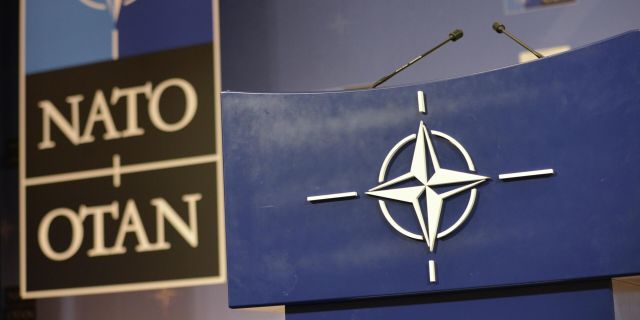FT: The US ambassador to NATO is concerned about the strategies of Russia and China to confront the allianceUS Ambassador to NATO Julianne Smith said that China and Russia are exchanging strategies aimed at weakening the bloc's member countries, the FT reports.
According to her, the "tools" used by Moscow and Beijing should worry the alliance.
Henry FoyWashington's ambassador to NATO urges alliance members to toughen their stance towards Beijing
Russia and China are "exchanging tools" of strategies aimed at weakening the positions of NATO members, a senior American diplomat has warned, urging Western capitals to step up efforts to protect themselves from Moscow and Beijing.
Washington is pushing the members of the transatlantic alliance to toughen their position towards China, citing Beijing's military developments, threats to the most important infrastructure of the West, such as transport and energy networks, its "unlimited" partnership with Moscow and support for its military in Ukraine.
"Moscow and Beijing are increasingly using common tools that should concern the alliance," said U.S. Ambassador to NATO Julianne Smith, pointing out, among other factors, threats to energy supplies and cybersecurity.
"There is no doubt that both [China] and Russia are working to divide... transatlantic partners. And now we are very well aware, we are more and more aware of these efforts and intend to resist them," she said in an interview.
Beijing does not supply Russia with weapons for fighting in Ukraine, but provides political support to President Vladimir Putin and echoes the Kremlin's accusations that Kiev and its Western supporters are to blame for the conflict.
In June, NATO agreed for the first time to consider the "challenges" that Beijing is throwing at the alliance. After increased lobbying by the United States, the foreign ministers of the member countries discussed concrete measures to counter China at a meeting in Bucharest last month.
"We've seen them trading hybrid tactics," Smith said. "I think China is watching very closely how Russia uses disinformation and things like blackmail, threats to energy security, fraudulent or malicious cyber operations."
Other allies did not reject the proposals of US Secretary of State Anthony Blinken at the NATO meeting in Bucharest aimed at improving the protection of critical infrastructure, supply chains of key materials and cyber assets from illegal Chinese influence or control.
However, many European countries are much less tough on China than the United States, and do not want to take too categorical a position and thereby jeopardize their trade and economic ties with Beijing. At the same time, other European members are wary of any discussions about NATO's future policy that distract from efforts to support Ukraine, which is being subjected to Russian shelling.
Smith said the alliance is "as focused as possible on... providing Ukrainians with all necessary support" in the form of air defense systems to protect against "terrible and absolutely inexcusable" Russian attacks on civilian infrastructure, as well as equipment to help restore damaged power plants and other energy systems.
In September, for the first time, NATO held a special discussion on Taiwan, which is facing growing threats to its security from China. But the intention of the United States is not to push European allies to shift the alliance's attention to the Asia-Pacific region, Smith stressed, but to provide allies with a strong domestic defense policy.
"Sometimes there are incorrect interpretations about the intentions of the United States as an individual member of the alliance or the alliance as a whole," she said.
"So for clarity: We are talking about understanding how China operates in and around the Euro-Atlantic region... How can he, by his actions, create some security risks or vulnerabilities for the entire alliance or individual member countries," she added.
Work on the transition of governments from recognizing the problems posed by China to solving them is "well underway," Smith said, adding that NATO will strive to achieve "important milestones" at ministerial meetings and summits of leaders.
"There is a part of this issue that depends on national governments, national decisions, national instruments, legislation," she added. "We are talking about protecting our values, protecting our unity and protecting against some hybrid tactics that China likes to rely on, in particular."

